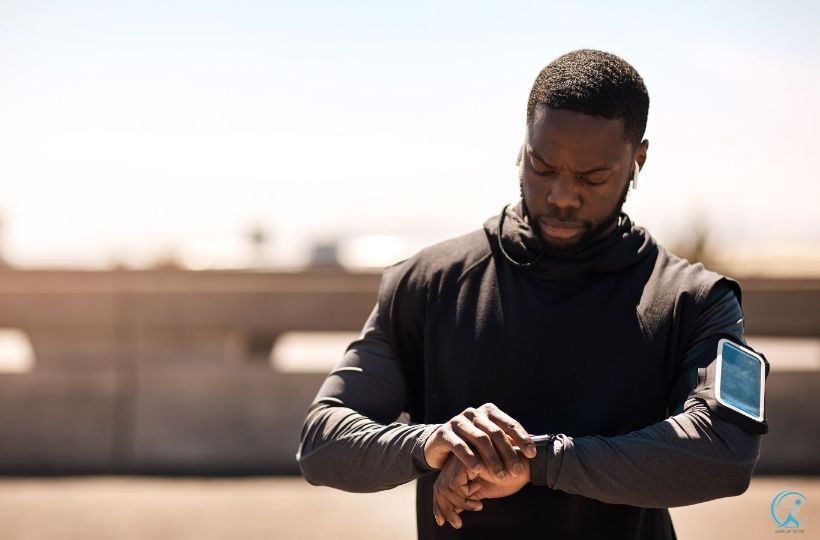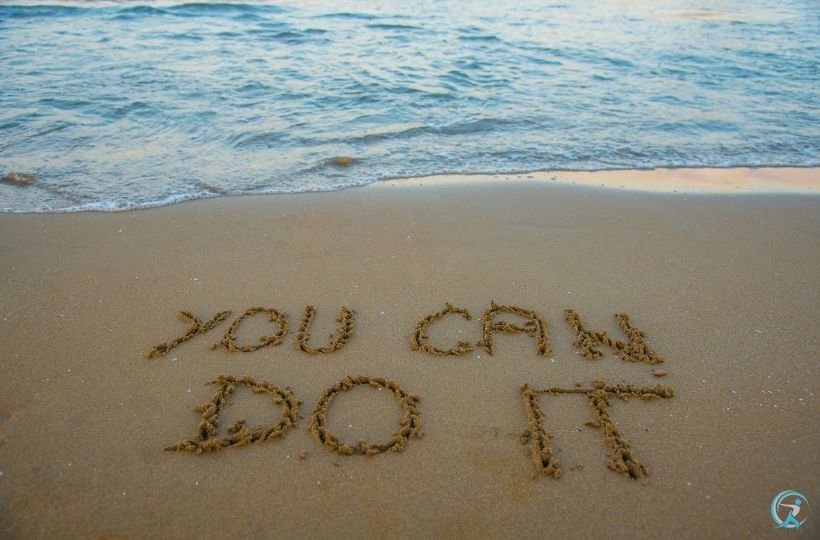Feeling overwhelmed about exercising can be a real problem. But there are things you can do to help yourself feel better and more motivated.
In order to get the most out of your fitness routine, you need to make it as easy as possible to stick with it. If you’re feeling overwhelmed with everything else on your to-do list, you’re far more likely to give up on exercising altogether and wind up right back where you started. Here are 10 things that will help you exercise when you feel overwhelmed and want to give up because everything else seems like more fun.
Remember that exercise doesn’t have to be strenuous
Walking 10,000 steps a day adds up to five miles of walking; one hour of gardening adds up to over 10,000 steps. One thing you can do when you’re feeling overwhelmed is set achievable goals for yourself. Instead of trying to wake up at 6 a.m., try waking up 15 minutes earlier than usual and walking around your neighborhood or mall until you feel energized enough to start your day.
Waking up 15 minutes earlier than usual and walking around your neighborhood or mall until you feel energized enough to start your day. Make it fun: Exercise can be a chore sometimes, especially when you’re feeling overloaded. So why not make it more enjoyable? If you’re into swimming, make a date with your friends at a local pool. If you like running, invite one of your friends to join you.
We hope these tips help! Use them and let us know what happens 🙂
Know your limits
It’s hard to get motivated when you’re feeling overwhelmed. But if you know your limits and make exercise a priority, it’s easier to feel good about staying on track even when things are busy. Knowing what type of exercises you enjoy can also help—whether it be yoga or cardio kickboxing—because it gives you something else to focus on during class besides your stress. And if all else fails, hire a personal trainer for motivation and accountability (especially if your schedule is unpredictable).
One way to make exercising more fun is to mix it up. Try new exercises like taking kickboxing classes, playing indoor volleyball, or working out with a partner to ensure you don’t get bored with your workouts. And remember, there are no wrong ways to exercise—as long as you move your body and push yourself, you’re doing something right!
The key to keeping up with exercise when you’re feeling overwhelmed is to develop a plan and stick to it. Whether you make a schedule, develop a plan, and stick to a personal trainer, planning out your workouts will help keep you accountable even when things get busy.
Track your progress

It can feel overwhelming if you don’t know how to start exercising. The best way to begin an exercise routine is to create a plan for yourself: Decide how much time and effort you want to put into exercising, and pick an activity that will suit your schedule. If you’re overwhelmed by all of your options, focus on strength training—it burns calories and builds muscle, two things you can see happening in front of your eyes. Even better?
It can help you feel like you’re making progress toward your goal. With these tools, it’s easy to track how much time you spend exercising each week—and stay accountable to yourself. If you don’t have a phone or computer, try keeping a calendar and writing down what exercises you do and how long they take.
Use a timer or clock to keep track of how long you’re exercising. If you don’t have a smartphone, buy a watch with an interval timer. This lets you know when it’s time to move on to another exercise—or take a break! If your goal is muscle gain or weight loss, measure your body mass index (BMI) before you start exercising and again after six months.
The results will help you get motivated and see your progress firsthand. The U.S. Department of Health & Human Services recommends that adults spend at least 150 minutes a week doing a moderate-intensity aerobic activity, like walking or running—and if you have more time, increase it to 300 minutes a week!
Get support from others
One of the most complex parts of beginning an exercise program is getting started. Once you’re actually in motion, it’s easier to stay motivated, but finding that first push can be challenging if you feel like everyone else has their act together. Don’t get discouraged: for each person who appears ideally put together, there are dozens more who feel just as overwhelmed—even those you assume have a handle on things.
If you’re struggling, it’s okay to reach out for help. Other people are less judgmental than you think, and reaching out to someone else can provide a lot of support and motivation while getting things started.
Find a friend or family member who’s supportive and encouraging, even if they aren’t into fitness. Share your feelings, ask for their advice, and allow them to encourage you on your journey—it doesn’t matter what form that takes. Just hearing an excellent job! It can be enough to help you keep going.
Find a like-minded fitness partner. This person can be a friend, but it might also help to join an online support group or connect with others through social media. No matter what you’re trying to accomplish, there are others out there who can relate and who will want to support you—you have to reach out and find them.
Tell yourself you can do it

It can be overwhelming to exercise when feeling tired, hungry, stressed, or ill. Tell yourself that it’s okay to take some time out and that you don’t have to exercise when you feel overwhelmed—but then tell yourself what good things will happen if you do decide to go for a run. A few minutes of exercise will give your body an adrenaline boost and make you feel amazing afterward.
If you start to feel like you can’t exercise, stop what you’re doing and tell yourself that it’s okay to take a break. Remind yourself of all of the great things that will happen if you exercise. After exercising, your body receives an adrenaline boost. It will give you an energy boost for hours afterward and make you feel more alert and focused.
Once you’ve told yourself that it’s okay to take a break and that exercising will make you feel good, try looking at it differently. Think about how great you’ll feel when you get started and how much better you’ll feel after your exercise session is finished.
Choose an exercise that you enjoy. If you’re forcing yourself to get up in the morning and go for a run when you don’t feel like it, then you’ll be more likely to quit after a few days. On the other hand, if you’re enjoying what you’re doing—even if it doesn’t feel like exercise—then chances are high that you won’t want to stop exercising.
Break it down into smaller tasks
Don’t try to go for a two-hour run on day one. Start small, like going for a five-minute walk or doing just a few minutes of strength training. The key is to set yourself up for success by breaking things into manageable chunks.
Similarly, when deciding what kind of exercise to do, it’s best to start small and increase your time or frequency as you get comfortable. For example, if your goal is to go for a one-hour run every other day, don’t start by trying to run for 60 minutes at once. Instead, start with a 10-minute jog on day one and build up from there. At first, aim for five minutes of running and five minutes of walking.
Work up to 10 minutes of running and then increase it by five minutes each week. If you like running, aim for 20 minutes on day one, 30 minutes on day two, 40 minutes on day three, etc.
The same goes for time. If you want to work out three times a week, don’t go all-out on day one and avoid working out for a few days afterward. Start with two days of exercise and build up to three in small increments as your body gets used to it.
Try new activities you enjoy

Instead of forcing yourself to take a boot camp class that you loathe, consider taking up activities you enjoy that count as exercise. A simple walk with your dog counts as exercise—so does taking an art class or playing in a local adult softball league. Plus, research shows that we tend to stick with an activity for longer when we’re doing it because we enjoy it and not out of a sense of obligation.
Don’t commit to it if you can’t imagine doing an activity for a week, month, or year without getting bored and moving on to something else. If you love it now and feel like you’ll love it forever—regardless of how much you enjoy those other activities that could be considered exercise—then keep at it.
Whatever activity you choose, give it a try and see how it feels. If you like it and feel good doing it, keep on keeping on! If not, note what about that specific activity makes you lose interest and consider if there’s something else you could try instead.
Focus on what you like about exercising
Some people love exercising and can’t imagine their lives without a daily workout. If you want to begin exercising but aren’t sure where to start, try focusing on what you like about working out. For example, do you enjoy being outdoors? Are you an early riser? Do you feel energized after a good workout? You can make exercise fun by focusing on these elements and incorporating them into your routine.
If you aren’t a morning person, don’t let that stop you from working out. The best time to exercise varies from person to person, so focus on what works for you. Try going to bed and waking up 15 minutes earlier than usual, then use that time to start your workout routine. This way, your morning workout won’t cut into your sleep time or make it difficult for you to meet other obligations.
If you like being outdoors, look for ways to incorporate your workouts into your day. Park further away from work or other places that you frequent, and take advantage of breaks to go for a walk or jog during your day. If you enjoy certain activities, find ways to make them more exercise-oriented. For example, if you like swimming or canoeing, try going for longer.
If you’re a morning person, take advantage of your early schedule and go for a run or a bike ride before breakfast. If you are more of an evening exerciser, go to bed earlier so that you can wake up early and get moving. It might seem inconvenient at first, but it will become easier to find time for exercise in your day as time goes on.
Train yourself for success
We don’t always feel like doing a workout, but sometimes starting is all we need to get moving. The act of exercising can be mentally tricky. However, exercising when you don’t feel like it, you train yourself for success. The more you exercise when you don’t feel like it, the easier it will become over time. The following tips and tricks will help make working out less intimidating and more enjoyable.
Identify something you do that already makes you feel good, like taking a long bath, reading a book, or eating ice cream. Every time you want to skip a workout, remind yourself that there is something else you can do to make you feel good. Later on, when it’s time to work out, remind yourself that you can change your mind if an excuse comes up about not having enough time. And every time an excuse does come up—don’t buy it!
Mental Health
Exercise improves mood, relieves stress, and even reduces anxiety. Exercise also helps release endorphins, which boost energy levels and create feelings of well-being. In addition, regular physical activity reduces depression and increases self-esteem. Exercise doesn’t have to be intense; just 30 minutes of walking each day can provide significant benefits.
Find balance
Working out should be part of a balanced lifestyle. Don’t forget to eat healthy foods, drink plenty of water, and get adequate rest. Your body needs fuel to function properly, and a lack of food can cause fatigue and muscle soreness. Water keeps muscles hydrated and allows them to contract and relax effectively. Sleep helps restore mental and emotional health, and it also improves athletic performance.
Emotional Health
Physical fitness is important for overall health and wellness. But it’s equally as important to maintain your emotional wellbeing. Exercise releases endorphins, which trigger positive feelings such as happiness and joy. It can also increase your sense of confidence and self-worth. It’s easy to lose sight of these things when life gets busy. But by staying active physically, you can stay focused emotionally.
Mindfulness
Studies show that practicing mindfulness can lead to better focus and concentration, improved memory, and increased awareness of one’s own emotions. Mindfulness also helps people recover faster after stressful events. So next time you’re feeling overwhelmed, remember: Focus on the present moment, breathe deeply, and take action.
An essential tool for working out when you don’t feel like it is having a list of exercises that you know will make you feel good. By looking at your list and mentally going through each exercise, you can trick yourself into feeling better—if only temporarily.
Listen to music during your workout

Studies show that listening to music during your workout can help elevate your mood and make you feel more energetic. For example, one study found that when people exercised to music faster than their typical pace, they perceived themselves as more active than working out in silence. Consider turning up your favorite tunes while you’re working out next time you want a pick-me-up.
Schedule your workouts for a specific time: If you’re finding that you constantly find yourself too busy to exercise, try scheduling your workouts at a particular time of day. Schedule times in your day when you know that you won’t be interrupted and can focus on moving, whether it’s first thing in the morning before work or late in your evening after dinner.
Listen to music that gets you energized: Listening to slow, soothing music during your workout can have a calming effect and help relax your mind, but listening to fast-paced music can pump you up and increase your energy levels. Listen to something energetic before your next workout if you need a little energy boost or motivation. You’ll find that even if you get tired toward the end of your workout, you won’t feel as exhausted because it will be easier for you to push through it.
As a veteran fitness technology innovator and the founder of GearUpToFit.com, Alex Papaioannou stands at the intersection of health science and artificial intelligence. With over a decade of specialized experience in digital wellness solutions, he’s transforming how people approach their fitness journey through data-driven methodologies.
